Steph W. from SEOPressor


...help you check your website and tell you exactly how to rank higher?


90
score %
SEO Score

Found us from search engine?
We rank high, you can too.
SEOPressor helps you to optimize your on-page SEO for higher & improved search ranking.
By vivian on February 28, 2017

A couple of weeks ago, Azfar rightly pointed out that voice search isn’t going to radically alter search engine optimization. Voice search and SEO consultants can stay friends, for now.
He’s right of course, but we’ve both explored the changes voice search will bring about. Make no mistake, digital marketing is going to change as a result of voice search. Why? Because it’s already here.
Some of you may be wondering, what is voice search? Well, it’s most commonly used by AI enabled personal assistants, installed on Google, Apple, and Microsoft devices for a while now. Alexa on the Amazon Echo and Dot has also entered the fray, clearly demonstrating that everyone is looking to corner this market.
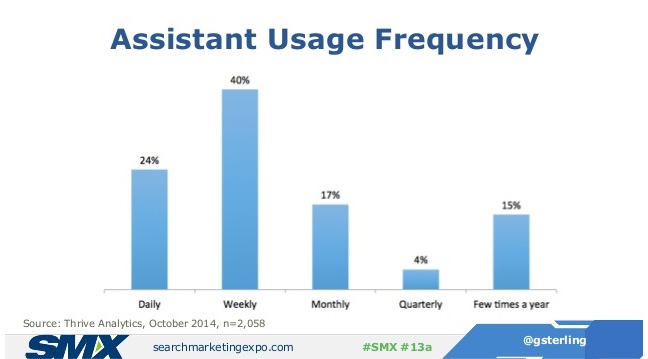
Voice enabled technologies are being constantly used, improved, and refined.
Siri, Cortana, and Google Now are smarter than they ever have been before. They employ machine learning algorithms that allow them to get better at what they do based on user feedback and behavior.
Already they are getting better at understanding context, interpreting intent based on past queries, breaking down multi-step queries and more. This would have been thought impossible only a few years ago, but here we are.
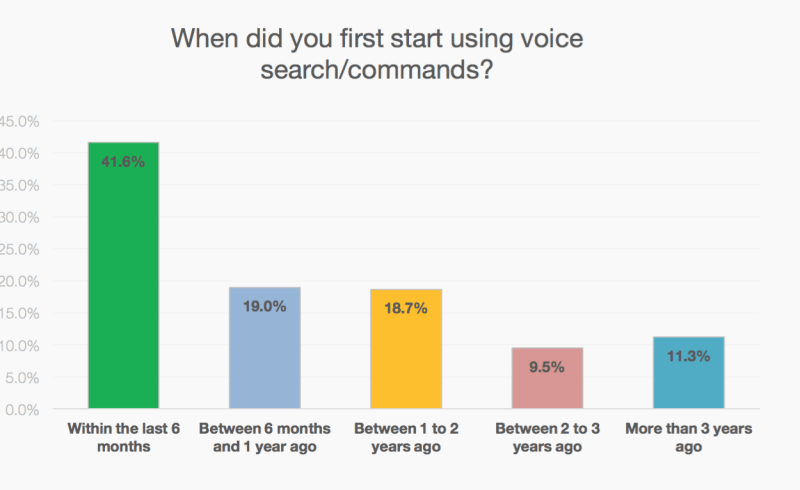
These new capabilities are now in use across the globe, but marketers have been slow to catch up to how they are being used, and how they themselves can take advantage of this new method of searching.
For the longest time, we have all talked about how content marketing is king. Voice search won’t change that fact, but it will change the nature of the content that wears the crown. Answers are now going to be the most powerful form of content, and in order to provide them, you’ll need to know the questions being asked.
Voice searches list results that include Search Engine Results Pages (SERP) like Google and Bing. When this is the case, they can often indirectly lead to pages where ads are served up.
If a voice search can lead people to a SERP with your ad on it, you need to be paying attention to voice search.
In this article, we’re going to cover the key ways in which digital marketing is changing in response to this evolution, so you don’t risk being left behind.
Thrive Analytics has published a detailed report on the demographics getting involved in using voice search.
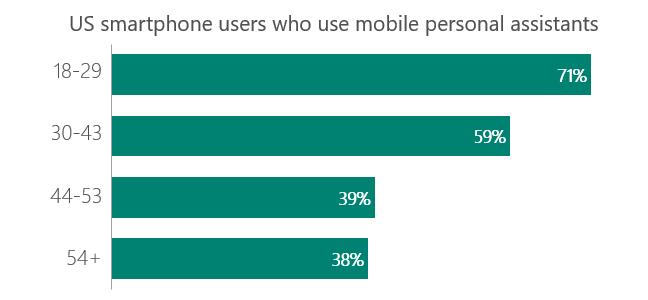
While the clear majority of users are young people, a surprising amount of over forties have been getting on the bandwagon too.
At first, this may seem surprising, but it shouldn’t be. Tiny screens and even tinier buttons can be difficult to navigate and the consequent error rate can be infuriating for people who already feel uncertain about how to use the device. Voice search presents an easier solution to getting the same information in a more intuitive way.
It’s important to remember that these usage figures are up 30% on last year. An increase of nearly a third in one year means we can project even greater market penetration for the years to come.
Cortana is a useful one to look at how voice search is used on desktop because it is built into the Windows 10 operating system. It is one of the only voice search systems that differentiates voice searches from text searches.
Currently, a third of all queries through Cortana are voice queries.
Query length for text searches is pretty short. Usually just two words. We have taught ourselves to think like computers. We use the most direct route to express our intent as we’ve found that’s the most successful way.
Because we’ve taught ourselves to think like computers when we use search engines through a keyboard, two to three keywords are all we have optimized for up until now.
With the advent of voice search, the pages that get the most volume, impressions, and clicks are the ones with three words in the keyword or query being optimized for.
So what you can start to do is augment short tail keywords like:
![]()
With longer, voice search SEO-friendly keywords like:
![]()
Hopefully, you can see how these longer form search queries read a lot more like speech than the shorter terms above.
Looking again at how we have adapted our typing to fit computer language, we tend to cut out question words when we type our searches. For example, “Paris vacation deals”.
When we use voice search, we are way, way less efficient than that. We don’t apply the learning we’ve used to anticipate what gets the best results on a search engine in the same way we do with a keyboard. We say things like, “Who has the best deals on Paris vacation packages?”
As a result, including question words like who, what, where, when, why, and how into your optimization will allow you stand a better chance of matching vocal searches.
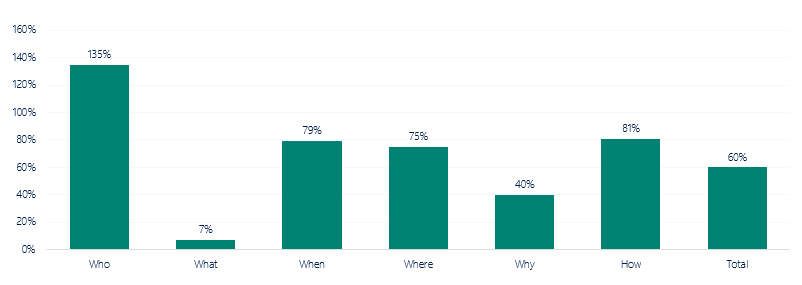
These question phrases will give us clues that text-based searches don’t have.
We anthropomorphize our voice search devices and software, expecting it to behave and understand like a human. This will require you to unlearn a lot of what you have learned about digital marketing and look to create a more person-centered approach. Question words are just the keys that unlock this new territory.
The biggest challenge search engines have faced in the last five years is interpreting a user’s intent based on their searches. This has been difficult to do, and in fact, it’s their behavior after the search –what they end up clicking through to– that helps search engines iteratively refine their guess work in this area for each user. (Understand about user behavior here to increase Google ranking.)
Voice search will make this much easier. Natural language is a much clearer signifier of intent. The type of questions asked to give greater specificity right up front.
If I say “Where is best to stay on a Paris holiday?” you know I’m more serious about going myself than if I say “who wants to go on a Paris holiday?” The keyword ‘paris holiday’ gives you nothing of the intent. The question does that.
Even better for marketers is that certain types of question indicate a greater readiness for action.

As all digital marketing is geared toward encouraging leads to convert into customers by taking an action, knowing this information and optimizing for these keywords will help make digital marketing easier and better. Identify your highest value question phrases and optimize for them.
Mobile voice search is three times more likely to be used to find local-based queries than text searches.
If you have a local physical presence, stop whatever else you’re doing on the digital front. You are the people who have the most to gain from the advancement of voice search, and you’re the people who need to get your optimization right.
The way to do it right is to do it cleverly, making the most of your local knowledge.
Make use of and refer to local landmarks. If your shop is by a football stadium, a monument, or even a cinema, then make sure you reference yourself as ‘near landmark’ so if people ask for a ‘coffee shop near landmark’ you get listed. Street names in your vicinity, public transport stops, anything.
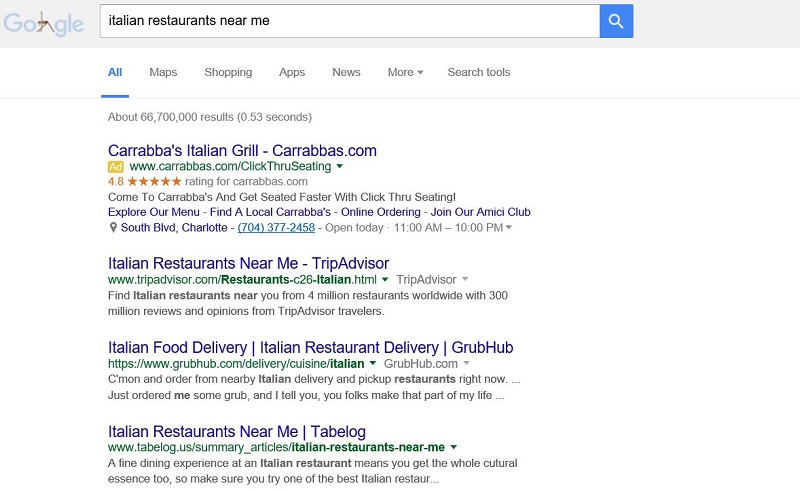
What are the local places of interest that matter to your company? If you’re a historical bookshop and you’re close to a museum, or an ice cream place near a swimming pool, then make those experiential connections in your imagination and make sure you write them down somewhere on your site. Anchoring yourself to related words will yield dividends.
How do folks describe your neighborhood in daily conversation? Are you ‘downtown’? Are you ‘midtown’? Are you ‘uptown’? Listen to how people in your service area refer to the area and refer to it in those same terms on your site.
One of the biggest drivers of voice search adoption from the Thrive Analytics research was busier lifestyles. People’s lives are becoming more and more chaotic, and as a result, they need to think and react faster. People can only think about what is in front of them, by which time they need to make a decision quickly.
Voice search will continue to trigger more fast answers in the SERPs. This benefits search engines, as they become the sole portal for final decisions, not just initial inquiries. This is part of why the evolution of search benefits them.
Things like “Where is the best Korean food near me?” and, “Where can I rent a car today?” will become more common, if not the most common, way to search.
These are distinctly local searches. This emphasizes speed, removing the number of actions a person has to take before their decision is made. That decision may be a booking, a purchase or an inquiry.
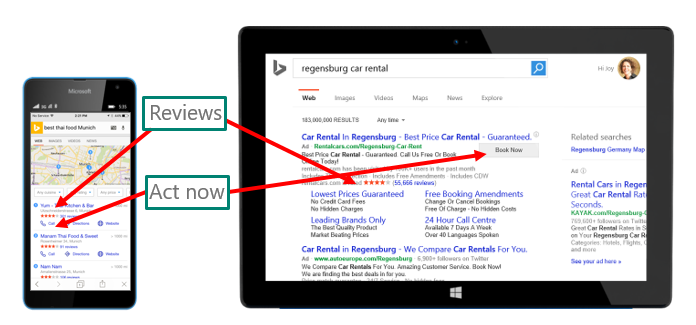
They trigger ads in the SERP that allow the user to act without going to a web page.
Make it a priority to keep your local listing, business listing, and your crowd-sourced sites updated and active. These sites are going to have a great deal more power when the searcher never leaves the SERP to conclude their business.
The most important thing to remember in this is that of all those looking to the future, all are seeing a bright new dawn on the horizon. These changes, while significant, are going to be changed for the better. They are going to provide more ways to connect with customers and more opportunities to gain exposure in searches.
It is also important to remember that the Internet of Things is also on the horizon, and connectivity between devices and even home appliances will increase the functionality of voice search and personal assistants even more. When this happens, the possibilities will become even more expensive.
When it comes to digital marketing, and the implications of voice search on it, the most important thing to take away is this.
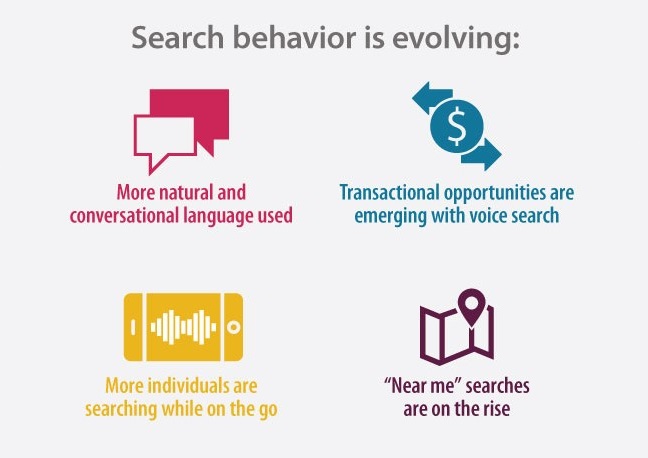
Search is finally becoming more human, so your approach must do the same.
You need to create a person-centered approach to marketing which frames your business not only through its products and service areas, but it in its language, its context, and the intentions of its customers.
Businesses must now be designed to answer questions. They must optimize for longer keywords and semantically related keywords. This article is part of a broader series on Voice Search we at SEOPressor have created, and all have valuable insights and actions to offer you in this pursuit.
Why not use your voice? Do you have any tips to share for voice search optimization or what do you think of the voice search trends? Let us know your thoughts in the comment box down below.
Updated: 8 July 2025


Save thousands of dollars (it’s 100x cheaper)

Zero risk of Google penalty (it’s Google-approved)

Boost your rankings (proven by case studies)
Rank High With This Link Strategy
Precise, Simplified, Fast Internal Linking.
